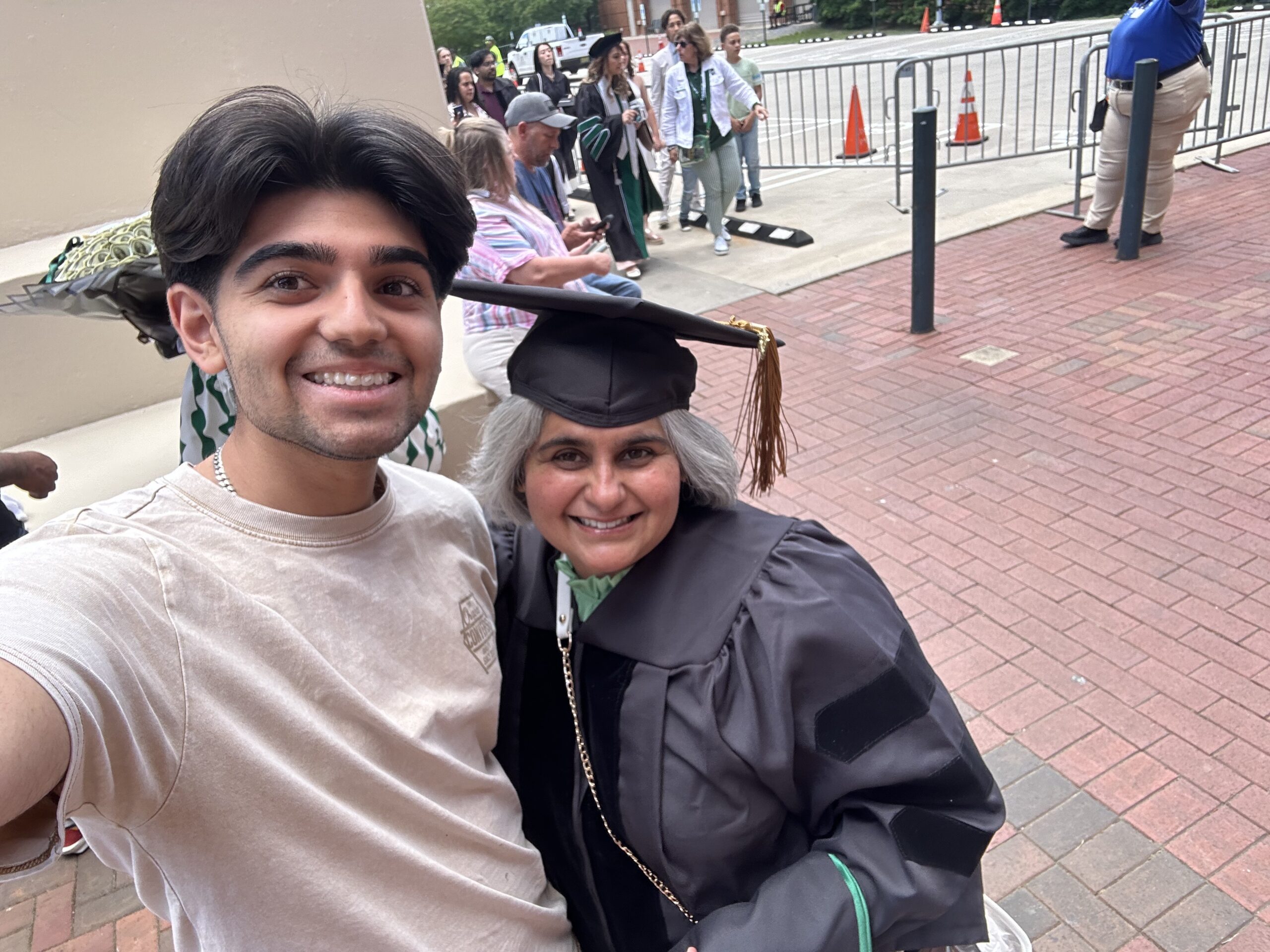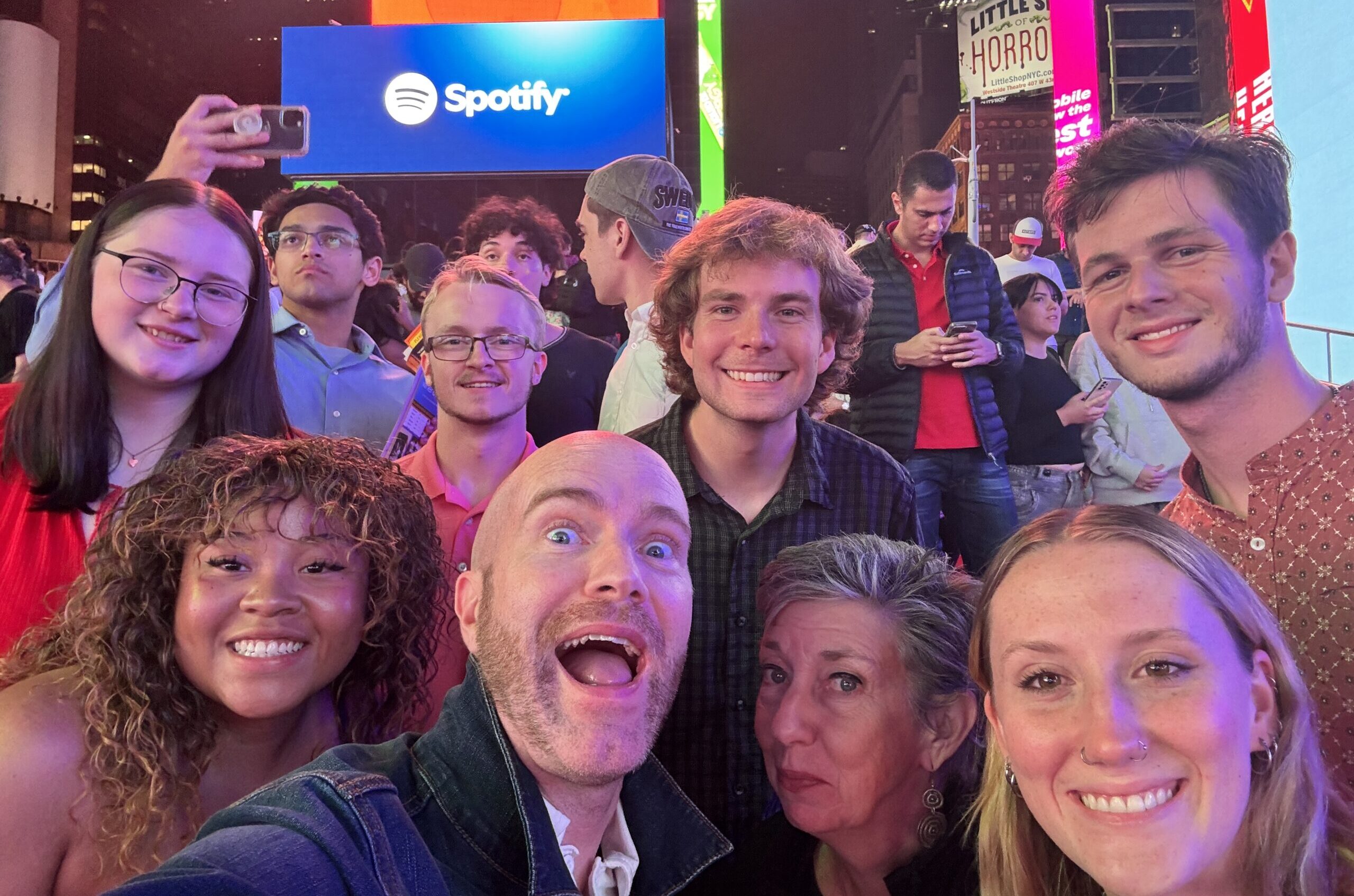From Tailgate Trash to Transformative Leadership: Paul Mobley’s “Chuck It” Legacy

When Paul Mobley applied to the Caldwell Fellows program as a student at NC State, he never imagined that his stipend proposal would become a campus-wide sustainability initiative—let alone a defining experience that would shape his future career. Today, Mobley is a senior research engineer at RTI International in Raleigh, where he leads cutting-edge work on carbon capture and climate technology. But it all started with football, trash, and a simple idea to make game days greener.
An Idea Takes Root
Mobley grew up in Raleigh and attended Wolfpack football games with his father, a longtime EPA employee. The game-day experience left an impression—particularly the sight of cans and bottles littering the parking lots or overflowing from trash bins. Motivated by those early experiences and his passion for the environment, Mobley proposed “Chuck It” (a clever spin on the name of head coach Chuck Amato) during his Caldwell Fellows interview day: a plan to bring recycling directly to the tailgating lots.
Encouraged by the positive response, Mobley didn’t let the idea end with interview day. “I cold-called the campus recycling department just to see if it was even possible,” he said. Director Sarah Ketchum was enthusiastic and invited him to work with her that summer to get the project off the ground.
Building Momentum
What followed was a crash course in leadership, project management, and problem-solving. Mobley wrote a grant that provided funding for supplies, reached out to NC State Athletics, and connected with Ray Brincefield, who proved critical in bringing departments together. Wolfpack Sports Marketing contributed additional resources through a new corporate advertiser, and the team began building infrastructure: repurposed pickup trucks called Chuckwagons, ten Chuck It Zones stationed around the stadium, and hundreds of recycling bins.
But the early days were far from smooth.
Mobley and the recycling team seriously considered scaling back after frustrating setbacks in coordinating with multiple departments. “There were points where it almost fell apart,” Mobley recalled. “It would have been easier to just do what we could control—but Ray encouraged us to see it through.”
After the first game, all the collected recyclables were accidentally trashed due to construction workers dumping debris into the roll-off container. “I felt utterly defeated,” Mobley said. “But we regrouped, came up with a plan to make our bin more identifiable, and added safeguards to prevent it from happening again.”
By the end of the season, the system had been refined, the program was operational, and Mobley had discovered the deep satisfaction of seeing hard work—and shared vision—come to life.
“Game days became the highlight of my college experience,” he said. “Driving the Chuckwagons, interacting with fans, and being part of something meaningful with my fellow Caldwell friends—especially Chris McHenry ‘07, who helped organize volunteers and led the program after I graduated—it was incredibly rewarding.”
Evolving into an Institution
Mobley continued working for the recycling department throughout his time at NC State, helping to sustain the program. Eventually, Chuckwagons were phased out in favor of handing out blue recycling bags to tailgaters—a lower-liability, lower-effort model that NC State Recycling continued to support.
Over time, the practice became institutionalized. “The best thing that could happen to a student-led project happened: it became part of the system,” Mobley said.
And through it all, Caldwell Fellows were key—volunteering at each game and passing leadership down year after year.
A Preview of His Future
Mobley didn’t realize it at the time, but organizing “Chuck It” turned out to be a perfect training ground for the work he does now at RTI International.
“This is basically what I do today,” he explained. “I come up with environmental solutions, pull together project partners, write proposals, implement the work, and navigate setbacks as they come up.”
He also learned timeless lessons about collaboration, persistence, and growth:
- “It never hurts to ask. Just reaching out can open a door.”
- “When things go wrong, don’t throw your hands up—roll your sleeves up.”
- “You can’t always control the outcome, but you can control the follow-through.”
Mobley reflected on how easy it is to gloss over the struggle when telling stories like this. “I don’t think I’ve ever told anyone how hard it was that first summer,” he said in a follow-up note. “It’s easy to talk about the nice end result, but there were so many points when it could have fallen apart. The only reason it didn’t was because I cared about the purpose and kept going.”
A Word to Today’s Fellows
To students currently in the program, Mobley offers this encouragement:
“Find what you’re passionate about, and don’t stop. Just follow through, even if the road gets bumpy. That’s what I learned from Caldwell.”
Though his current days are full—coaching soccer for his three young sons and managing high-stakes sustainability projects—he still makes time for NC State football. “My oldest is now a die-hard Pack fan,” he said. “So I’ve got a good excuse to keep going to games.”
And yes, he still smiles when he sees the recycling efforts at the NCSU football games.


